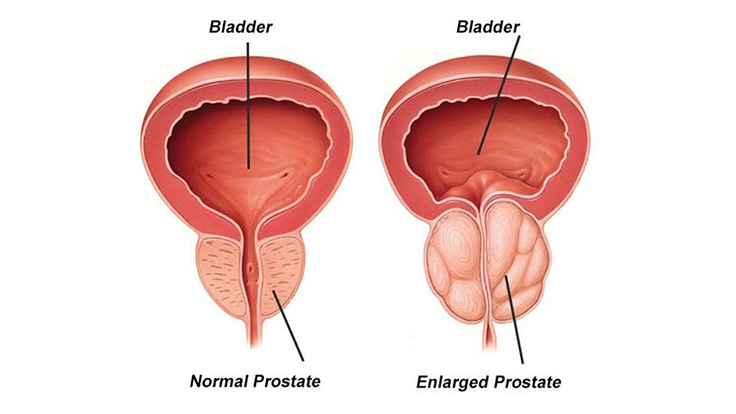Published on:24-05-2023
If you have been recently diagnosed with prostate enlargement, you might be worried about developing the risk of prostate cancer.
But do not worry.
Almost every man above 50 experiences an enlargement in the prostate gland, also known as Benign Prostate Hyperplasia (BPH).
Since benign prostate enlargement is non-cancerous, the risk of developing prostate cancer is equal to those with no prostate enlargement.
However, every patient should deeply understand this gland and its function. So, let’s proceed:
What Is Prostate Enlargement?
The prostate gland is present in men between the bladder and the penis. It also surrounds the urethra tube through which urine passes. When this gland becomes enlarged, it puts pressure on the bladder. As a result, the patient faces difficulty in peeing and experiences other related problems like kidney stones, UTIs, etc.
Symptoms
Almost every symptom of this gland’s enlargement is related to urine. Some of the most common symptoms include:
- Difficulty in
urinating
- Frequent urge to
urinate
- Difficulty in emptying a
full bladder
- Painful urination
- Frequent urination at night
Apart from it, some less common and severe symptoms include:
- Blood in urine
- Recurrent UTI
- Inability to urinate
Diagnosis
A healthcare practitioner will first ask you about the peeing routine and difficulties. After that, patients go through a physical exam. Some medical tests are also done, and if needed, an ultrasound and a biopsy are also required.
You will get the list of tests from the healthcare practitioner, which will help diagnose your problem.
Treatment
The results of the medical tests will determine the severity of your case. Not just this, but the tests will also help the physician to learn what other problems are arising in your body due to prostate enlargement.
Medicine is the first step of the treatment. However, the doctor might recommend surgery or a combination of both if the condition is severe.
Many types of therapies, as well as surgeries, are present to treat the prostate gland. Some of them include:
- Transurethral microwave
thermotherapy (TUMT)
- Transurethral resection
of the prostate (TURP)
- Transurethral incision of
the prostate (TUIP)
- Prostate Lift
- Laser Therapies
- Robotic waterjet
treatment
- Water vapor thermal therapy (WVTT)
Each treatment option comes with a different follow-up plan. Depending upon the treatment and condition, your doctor will recommend when to follow up and what preventive measures are essential.
Home Remedies
Here are a few remedies that can help you control the symptoms:
- Drink lots of water but
limit the water intake at night
- Do not hold the pee
- Limit caffeine and
alcohol consumption
- Maintain a healthy
weight
- Exercise regularly
Prostate Enlargement Treatment at Springfield Medical Clinic
At Springfield Medical Clinic, you get all the latest therapies and surgeries for an enlarged prostate. Our healthcare professional recommends a suitable treatment plan depending on the severity of your condition, age, and medical history. Book an appointment today to consult our experienced healthcare expert.

